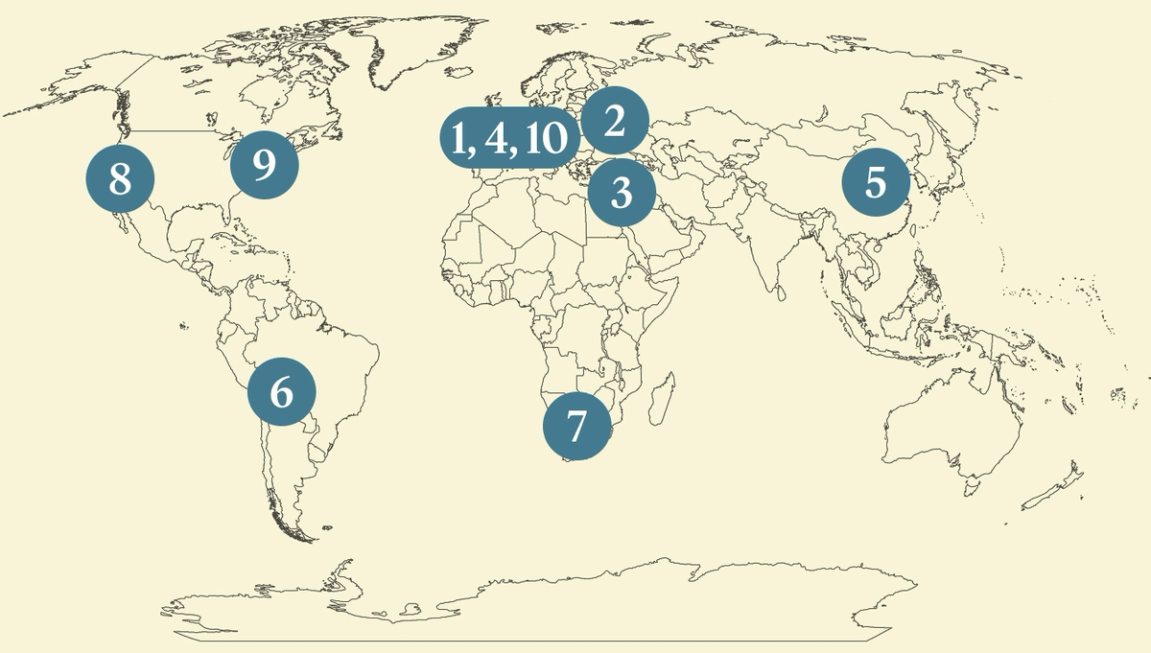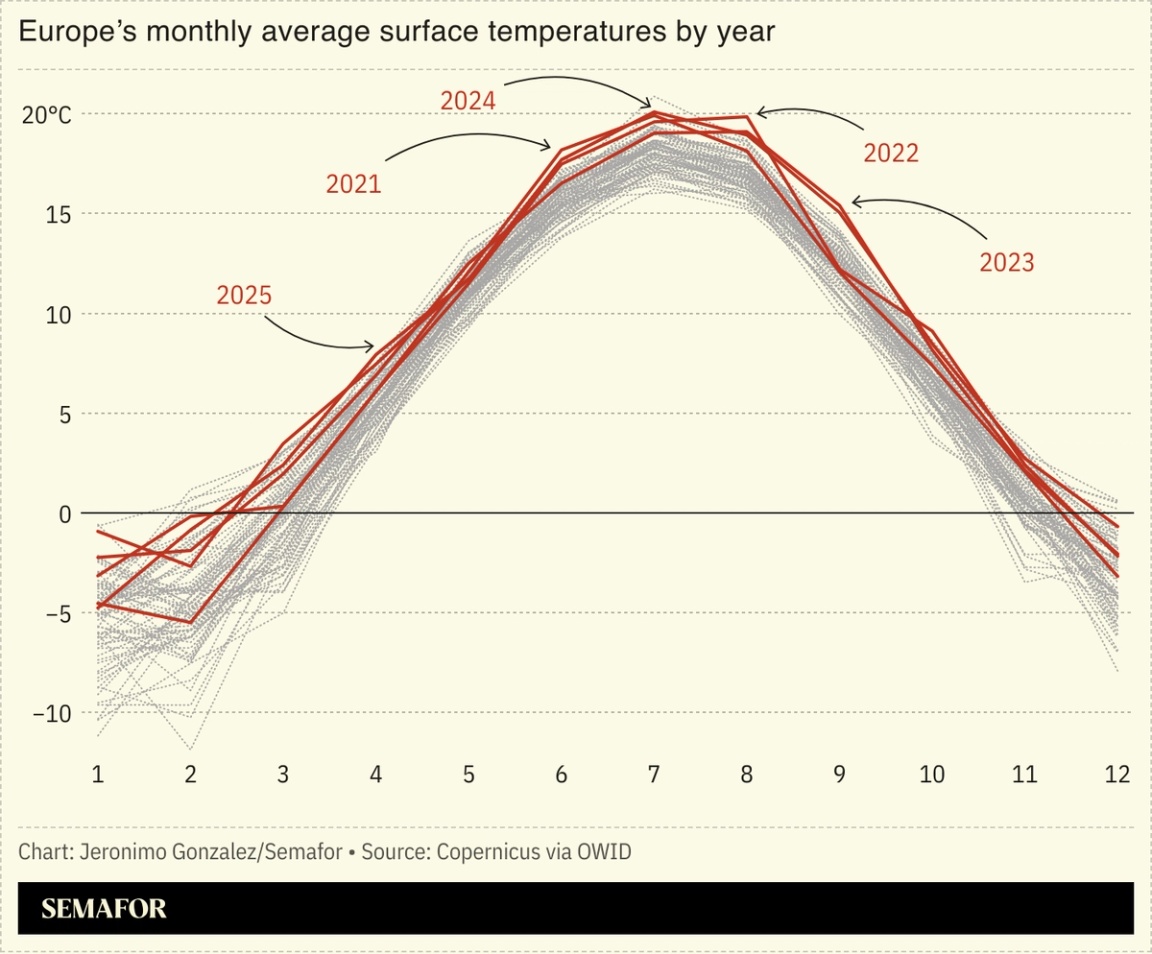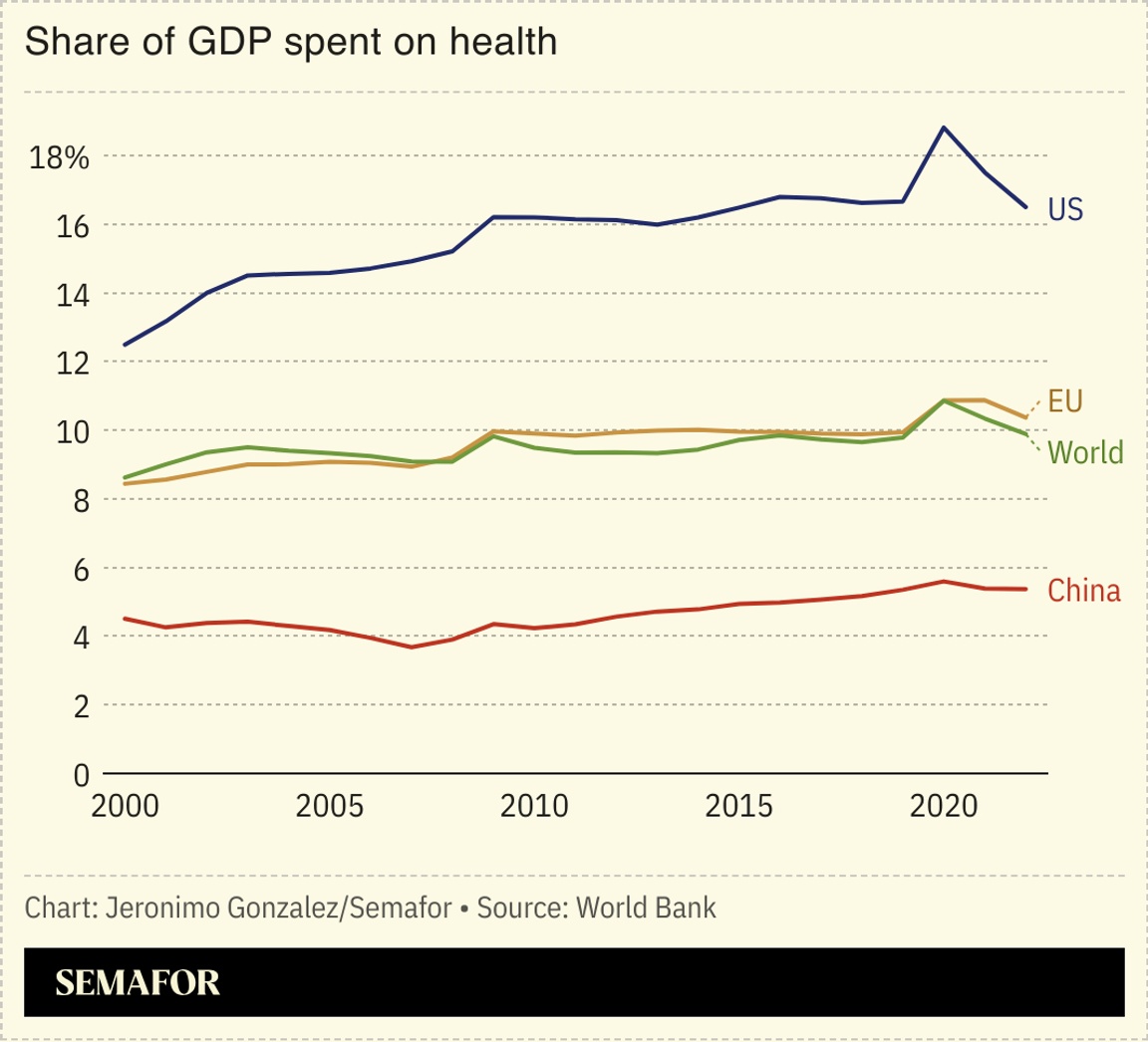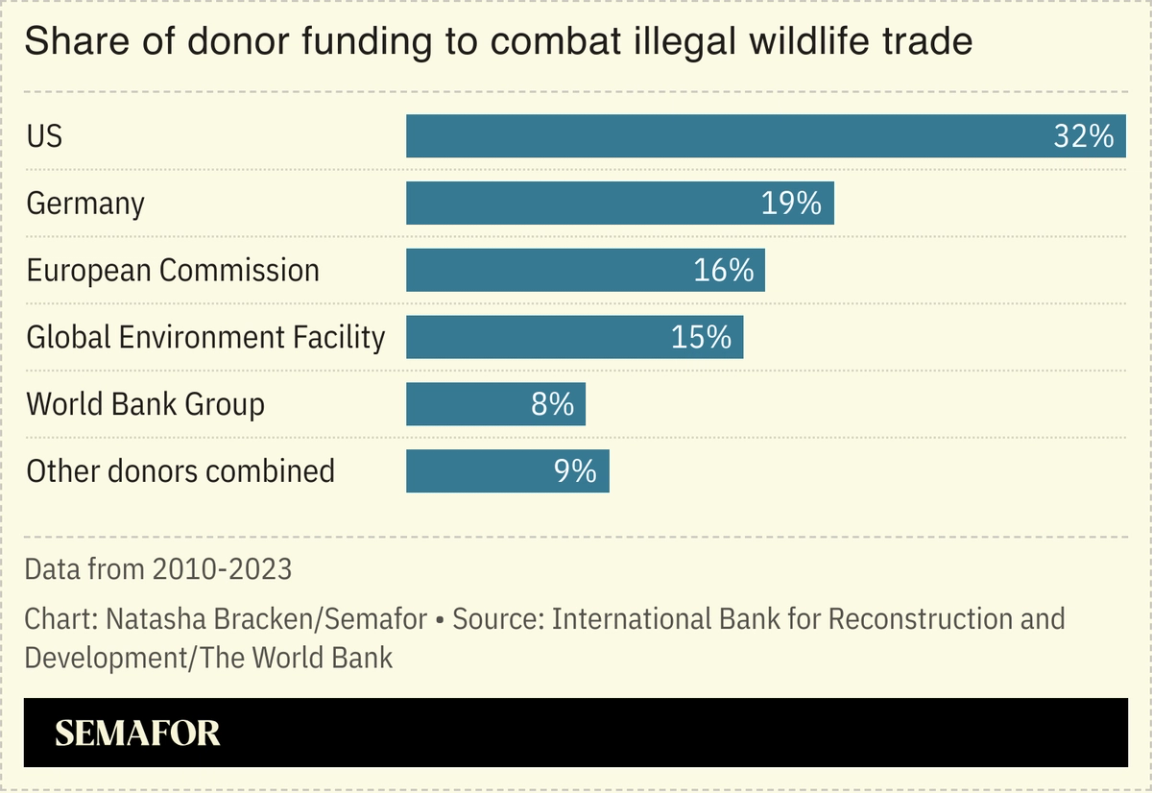| | European leaders call Trump ahead of his meeting with Putin, Gaza’s hospitals face a medical supply ͏ ͏ ͏ ͏ ͏ ͏ |
| |   Budapest Budapest |   Edinburgh Edinburgh |   Shenzhen Shenzhen |
 | Flagship |  |
| |
|
The World Today |  - Euro leaders call Trump
- Drones stop helicopters
- Gaza medical supply crisis
- Wildfires in Europe
- US-to-China brain drain
- Bolivia’s shrinkflation
- Cuts hit poaching curbs
- In-person interviews return
- Kodak may shut down
- Mondo’s latest record
 A meteorite older than the Earth hits a house in Georgia, and a family-run Ukrainian restaurant in London. |
|
Europe’s leaders to speak to Trump |
 Yulia Morozova/Reuters Yulia Morozova/ReutersEuropean leaders will speak to US President Donald Trump today in a last-minute attempt to persuade him not to cut a deal with Russia without Ukraine’s involvement. Ukrainian President Volodymyr Zelenskyy — who will join the call but who has not been invited to Trump’s meeting with his Russian counterpart on Friday — has warned that ceding territory to Moscow, as Trump has suggested, would create a springboard for a wider war. The White House downplayed the expectations for the meeting yesterday, calling it a “listening exercise” for Trump. Zelenskyy will try to impress his demands on Trump today: Ukraine wants to ensure a lasting ceasefire, meaningful security guarantees, and billions of dollars in reparations from Moscow, Politico reported. |
|
 Valentyn Ogirenko/Reuters Valentyn Ogirenko/ReutersDrones have rendered helicopters near-unusable on the front lines in Ukraine. Rotary-wing aviation has been used for ground support and resupply since World War II, and helicopters were a mainstay of Russia’s air attacks in the war’s early days. But high-speed remotely piloted drones can outrun even modern attack helicopters, two defense journalists wrote in Counteroffensive Pro, and Kyiv’s elite drone unit has recorded several direct hits on Russian aircraft in mid-flight. Ukraine’s forces lacked many helicopters even before the 2022 invasion, so have been less affected by the rise of drones, but Russia has been forced to keep its choppers away from the front line. Both sides are increasingly using helicopters to shoot down slow-moving long-range drones behind their lines. |
|
Gaza siege hits medical supplies |
 Khamis Al-Rifi/Reuters Khamis Al-Rifi/ReutersIsrael’s siege of Gaza has led to a shortfall of medical supplies, with one US doctor telling the BBC he had to recycle pins and screws from patients who have died. The World Health Organization has warned that Israel’s plan to take over Gaza City — part of a wider plan to take control of the whole enclave — could exacerbate an already “catastrophic” health emergency. According to the WHO, just 50% of hospitals are operating in the strip, with bed occupancy rates reaching 300% in one hospital. Although Israeli Prime Minister Benjamin Netanyahu has not said when troops would enter Gaza City, his country’s forces have continued to pound the area, killing dozens in recent days. |
|
Heat waves, wildfires in Europe |
 At least three people have died and thousands have fled their homes as wildfires spread across southern Europe. A heat wave has brought temperatures of over 40°C (104°F) in much of France, Greece, Italy, Portugal, Spain, and the Balkan countries, creating dry conditions perfect for fire. Thousands of firefighters and soldiers have been deployed to battle the blazes. Wildfires are increasing globally as the world warms: Canada’s wildfire season is already the second worst on record, and both the Scottish and English capitals have seen grassfires, including on the famous Arthur’s Seat in Edinburgh, an extinct volcano in the heart of the city next to the Scottish Parliament. |
|
China attracts US science talent |
 A top cancer specialist left the US and returned to his native China in the wake of President Donald Trump’s funding cuts, part of a wider exodus of scientific talent. Feng Gensheng of the University of California San Diego moved to North America in the 1980s and is a world expert in tumor immunology. Beijing has been keen to attract diaspora researchers back to China since before Trump’s second term — scientists are offered financial incentives, and the number returning tripled between 2010 and 2021 — but funding cuts appear to have accelerated the process. European and Australian universities are also keen to attract US researchers whose funding streams are threatened: Health and climate funding initiatives have been particularly badly hit. |
|
Bolivia’s pre-election shrinkflation |
 Claudia Morales/Reuters Claudia Morales/ReutersThe shrinking of a staple loaf of bread in Bolivia highlights the severity of its economic crisis ahead of Sunday’s presidential election. For years, Bolivians could get a 100-gram (3.5-ounce) “battle bread” from government-subsidized bakeries for just 7¢. But now, while the price remains the same, buyers get a loaf 60% the size. “It’s like eating a bit of air, a Communion wafer,” a shopper in La Paz said. The Movement Toward Socialism has ruled Bolivia since 2006, for years benefiting from a commodities boom. However, as state revenues have fallen, the model has become ruinously expensive, with the government spending 4.2% of GDP on subsidies, feeding a crisis that has opposition candidates leading the presidential race. |
|
Aid cuts hit anti-poaching programs |
 US cuts to foreign aid have weakened anti-poaching efforts in Africa, with Mexican cartels and Chinese triads ramping up their presence in the illegal trade. Around $23 billion in illegal wildlife — much of it used for traditional medicine in East Asia — is traded each year, with many governments and conservation agencies formerly relying on USAID to fund their anti-trafficking efforts. However the sudden shuttering of the aid agency earlier this year has led to a free-for-all, with international crime groups piling into the trade. “The traffickers are loving it,” a conservationist told the Financial Times. “With fewer restrictions, they think: ‘No one will catch us, so let’s go for it.’” |
|
 From local shops to global sellers, small businesses are seizing new opportunities. They’re leveraging technological breakthroughs, innovating their business models, and navigating market shifts to compete on a bigger scale. They remain vital engines of growth, even as they face rising costs, labor shortages, and shifting regulations. Emerging digital tools and evolving policy landscapes are opening new pathways — and presenting new challenges — to expand, reach new markets, and compete for customers. Join Semafor as we explore how small businesses are embracing their digital potential, tackling competition in 2025, and reaffirming their role as a driving force in the US and global economy. September 10, 2025 | Washington DC | Request Invitation |
|
AI drives in-person interviews |
 Dado Ruvic/Illustration/File Photo/Reuters Dado Ruvic/Illustration/File Photo/ReutersArtificial intelligence-driven cheating has led to the return of the in-person interview. Video calls have become standard in hiring, driven by greater efficiency and the rise of remote work. But AI tools can feed candidates answers off-screen, recruiters told The Wall Street Journal. Google, McKinsey, and Cisco are among companies adding or bringing back face-to-face meetings to avoid being tricked; one recruitment firm said in-person interviews went up from 5% last year to 30% this year. Applicants are also using AI to improve their resumes and write cover letters, while recruiters use it to filter candidates or even interview them, in an ongoing AI recruitment arms race. |
|
 Brandon Bell/Getty Images Brandon Bell/Getty ImagesKodak said it might have to close because of an inability to pay its debts. The US company sold its first camera in 1888 and incorporated in 1892. Like Ford some decades later, it took a cutting-edge technology and made it accessible, with the slogan “You push the button, we do the rest.” It symbolized modernity: In Bram Stoker’s 1897 novel Dracula, the hero Jonathan Harker uses a Kodak camera, a contrast with the ancient evil of the antagonist. But the firm failed to keep up with advances in digital technology and filed for bankruptcy in 2012. It restructured $6 billion in debts but still owes $500 million, and in its earnings report said it lacked the liquidity to pay. |
|
Mondo breaks world record, again |
|
|